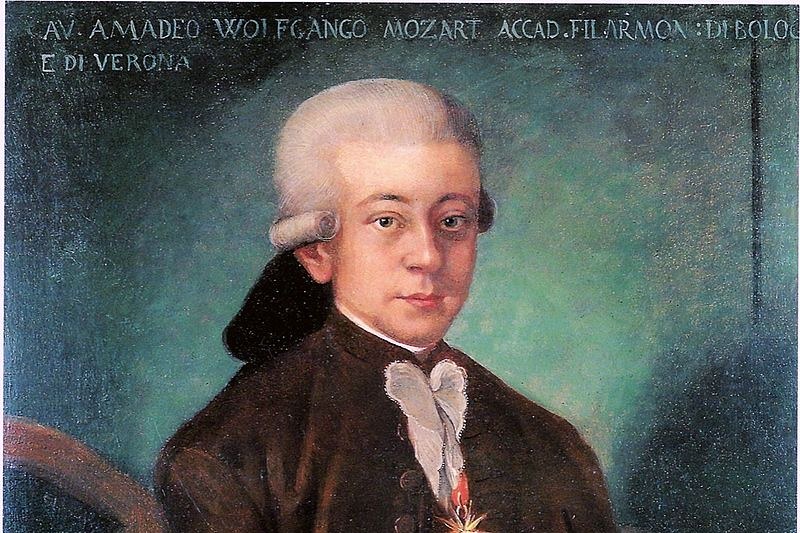Wolfgang Amadeus Mozart is widely regarded as one of the greatest composers in the history of classical music. Born in 1756 in Salzburg, Austria, showed an exceptional talent for music at an early age, composing his first piece at the age of 5 and giving his first public performance at the age of 6. Over the course of his relatively short life, Mozart composed over 600 works, including symphonies, operas, chamber music, and solo piano pieces. In this post, we will take a journey through the life and music of this musical genius and explore his impact on the world of music, highlighting why is Mozart considered a genius and his enduring Mozart legacy.
The Early Years
Mozart’s father, Leopold, was a successful composer and music teacher who recognized his son’s talent at an early age. He began teaching Mozart music theory and keyboard skills at a young age, and quickly developed a love for music. By the age of 6, was performing in public, playing for royalty and other dignitaries throughout Europe.
See Also: David Guetta: Exploring the Life and Music of the EDM Icon
David Guetta: Exploring the Life and Music of the EDM IconAs a teenager, Mozart traveled extensively throughout Europe, performing and composing music. He spent time in Italy, where he composed several operas, and in Paris, where he composed his first symphonies. By the time he was 20 years old, Mozart had already composed many of his most famous works, including his first opera, “Idomeneo,” and his first piano concerto.
Mozart’s Musical Style
Mozart’s music is known for its beauty, complexity, and emotional depth. He was a master of melody and harmony, and his compositions are characterized by their elegance, clarity, and balance. His musical style evolved over the course of his life, with his early works reflecting the influence of his father and the music of the Baroque period, and his later works showcasing a more mature and individual style, demonstrating Mozart genius in his compositions.
See Also: Vangelis’ Innovative Approach to Electronic Music
Vangelis’ Innovative Approach to Electronic MusicMozart’s Greatest Works
Mozart’s catalog of works is extensive, and he composed in a variety of genres, including opera, symphony, chamber music, and solo piano. Some of his most famous works include:
- Symphony No. 40 in G minor
- The Marriage of Figaro
- Don Giovanni
- Requiem in D minor
- Eine Kleine Nachtmusik
- Piano Concerto No. 21 in C major
These works showcase Mozart’s mastery of melody, harmony, and orchestration, and continue to be beloved by audiences today, contributing significantly to his legacy.
See Also: Exploring the best singles by The Rolling Stones: Fan favorites and hits
Exploring the best singles by The Rolling Stones: Fan favorites and hitsLegacy
Mozart’s impact on the world of music cannot be overstated. He was a pioneer of the classical period, and his music paved the way for future composers such as Beethoven and Schubert. His influence can be heard in music of all genres, from film scores to contemporary classical music.
Despite his relatively short life, his impact on the world of music is immeasurable. He was a pioneer of the classical period and his music paved the way for future composers such as Beethoven and Schubert. His legacy has continued to inspire musicians and audiences alike, and his music remains as fresh and exciting today as it was over two centuries ago.
See Also: The Rise of K-Pop in 2024: Trends and New Artists
The Rise of K-Pop in 2024: Trends and New ArtistsMany of Mozart’s works have become cultural touchstones, instantly recognizable even to those who are not classical music enthusiasts. His operas, including “The Marriage of Figaro,” “Don Giovanni,” and “The Magic Flute,” are still regularly performed in opera houses around the world. His Requiem in D minor, which he was working on at the time of his death, remains one of the most celebrated choral works in the classical canon.
Mozart’s influence can be heard in music of all genres. Many popular songs have been based on Mozart’s melodies, and his music has been used in countless films, television shows, and commercials. His legacy has also inspired countless composers, who continue to draw inspiration from his music.
See Also: Keith Richards facts: Rolling Stones star’s life and legacy at a glance
Keith Richards facts: Rolling Stones star’s life and legacy at a glanceIn conclusion, Mozart was a musical genius who left an indelible mark on the world of classical music. His prodigious talent, coupled with his tireless work ethic, allowed him to create a vast body of work that continues to inspire and delight audiences around the world. His music remains as fresh and exciting today as it was over two centuries ago, and his legacy will continue to inspire future generations of musicians and music lovers for many years to come.
For those interested in exploring Mozart’s works, numerous performances are available on Mozart YouTube, offering a vast array of his compositions performed by musicians around the world. This digital platform serves as a testament to Mozart’s enduring popularity and the timeless appeal of his music.
In recent explorations of Mozart’s impact, the intriguing study “Arianna Rauch Declassified” delves into unseen aspects of Mozart’s life, offering new perspectives on his genius and the mysteries that still surround his compositions. This research adds another layer to our understanding of Mozart’s life and work, further enriching the narrative of his enduring Mozart legacy.

